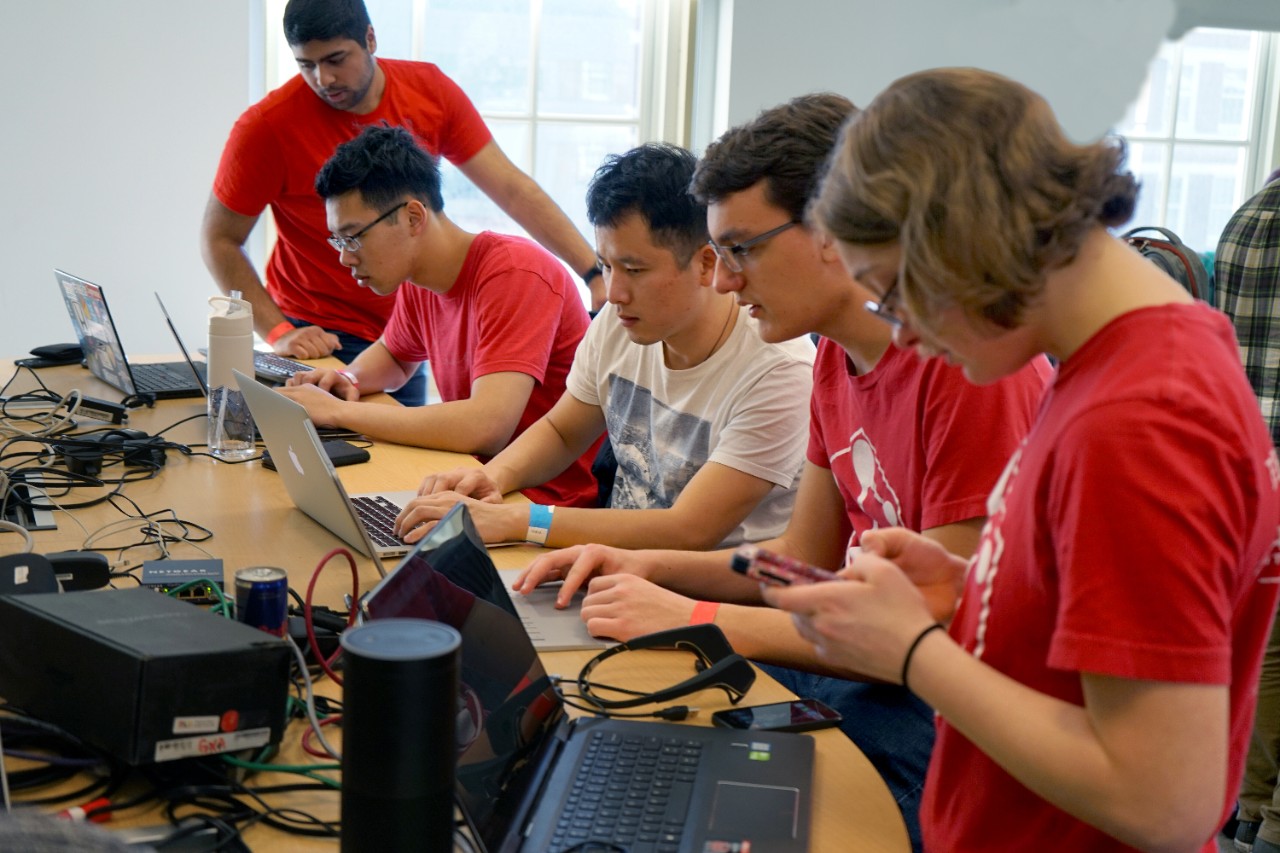How to become a cybersecurity engineer: A student-friendly career guide
Curious about cybersecurity careers? Learn how to become an engineer & what to expect along the way

If you're a tech-savvy college student who loves solving problems, cybersecurity engineering offers an unbeatable combination of job security, high starting salaries and endless growth opportunities.
Every industry — from finance and healthcare to government and tech companies — desperately needs cybersecurity professionals, creating massive demand for new graduates.
You'll use your analytical skills to think like both a hacker and a defender, staying ahead of cyber threats while building secure systems.
With clear advancement paths and competitive pay right out of college, it's a field perfectly suited for students ready to turn their passion for technology into a rewarding career.
Get Career + Co-op Support in One Place
Why cybersecurity engineering is a great career for students
For students considering a career in cybersecurity engineering, there are many compelling reasons why it’s a standout choice.
Market demand & opportunities: There's a massive talent shortage in cybersecurity, with millions of unfilled positions globally. This widespread need means you'll have your pick of industries and locations.
Financial benefits: Cybersecurity roles typically offer some of the highest starting salaries in tech. Entry-level positions often start at $70,000-$90,000+ annually, with rapid salary growth as you gain experience.
Job security: As long as technology exists, cyber threats will exist. This makes cybersecurity one of the most recession-proof career paths available. Your skills become more valuable over time, not obsolete.
Perfect skill match: If you're naturally curious about how systems work, enjoy puzzle-solving and like staying ahead of constantly evolving challenges, cybersecurity engineering is ideal. You'll use critical thinking daily, whether you're analyzing attack patterns, designing secure architectures or responding to incidents.
Career growth: The field offers clear advancement paths into specializations like penetration testing, security architecture, incident response or management roles. Many professionals move into consulting, start their own firms or transition into executive positions.
Purpose-driven work: You're literally protecting people, businesses and critical infrastructure from real threats. There's genuine meaning in knowing your work prevents data breaches, financial fraud and privacy violations.
Understanding UC's two cybersecurity programs
At the University of Cincinnati, there are two distinct cybersecurity-related majors:
Cybersecurity Engineering (CEAS): Focuses on designing and building secure systems that integrate software and hardware. Cybersecurity engineers develop new technologies, identify vulnerabilities early in the design process, and create the next generation of secure infrastructure.
Cybersecurity (CECH): Centers on maintaining and managing secure systems. Graduates often go into roles like IT security analyst or cybersecurity specialist, working to monitor systems, detect threats, and respond to cyber incidents.
While both lead to exciting careers, your ideal path depends on whether you're more interested in developing secure technologies or protecting and maintaining them
What does a cybersecurity engineer do?
Cybersecurity engineers are the people who build and protect the digital defenses that keep hackers out and information safe. They design secure systems, watch for threats and stop cyberattacks before they can cause damage.
Think of them as the digital bodyguards for everything from personal data to entire networks.
Their day-to-day might include setting up firewalls, running security tests, fixing vulnerabilities and staying ahead of the latest hacking tricks.
It’s a fast-paced, high-impact job that blends tech skills with problem-solving.
Skills you need to build as a student
If you’re thinking about a future in cybersecurity engineering, now’s the time to start building the skills that employers are looking for.
Technical skills
You don’t need to be an expert yet, but getting comfortable with the basics goes a long way. Focus on:
Networking fundamentals (how devices connect and talk)
Coding languages like Python or Java
Operating systems (especially Linux)
Cloud platforms and cloud security concepts
Pro tip: UC’s Office of Information Security offers free learning resources — tutorials, videos, podcasts (like Darknet Diaries, Hacking Humans) and guides — to help you level up.
Soft skills
Cybersecurity isn’t just about tech — it’s also about how you think and work with others. Important soft skills include:
Critical thinking to analyze problems and find solutions fast
Attention to detail so nothing slips through the cracks
Communication to explain security issues clearly to both tech teams and non-tech audiences
Classes & certifications to check out
Start with UC classes and campus opportunities, but if you want to boost your resume, consider:
UC course offerings: UC’s Bachelor’s in Cybersecurity or Cybersecurity Engineering includes hands-on labs, malware reverse engineering and mandatory co‑op rotations .
Student groups & competitions: Join Cyber@UC — a student‑run club that hosts CTF events, lab nights and networking with local companies.
Certifications:
CompTIA Security+ – great for beginners
Certified Ethical Hacker (CEH) – learn to think like a hacker
CISSP – an advanced goal to work toward
Salary expectations and career outlook
Cybersecurity engineering is one of the fastest-growing — and best-paying — tech fields out there.
Starting out:
Entry-level in Cincinnati: around $95K/year
Nationwide: typically $55K–$75K, higher with certifications or co-op experience
Mid to senior level:
Mid-career engineers often make $130K–$160K+
Specialized roles like DevSecOps can hit $180K–$200K
Job growth:
Cybersecurity engineering jobs are expected to grow 33% by 2033 — much faster than average
There’s more demand than supply, so skilled candidates are in high demand
What you can do now:
Get experience through UC’s co-op program
Earn certifications like CompTIA Security+
- Join Cyber@UC to build skills and your resume
Ready to launch your cybersecurity engineering career?
At the University of Cincinnati, you won’t have to navigate the path alone.
From hands-on co-ops and cutting-edge courses in the College of Engineering and Applied Science (CEAS) to student groups like Cyber@UC and free resources from the Office of Information Security, you’ll have everything you need to build experience and stand out in a high-demand field.
Whether you're just exploring or ready to dive in, UC offers the tools, mentorship and real-world learning to help you protect the future — and shape your own.